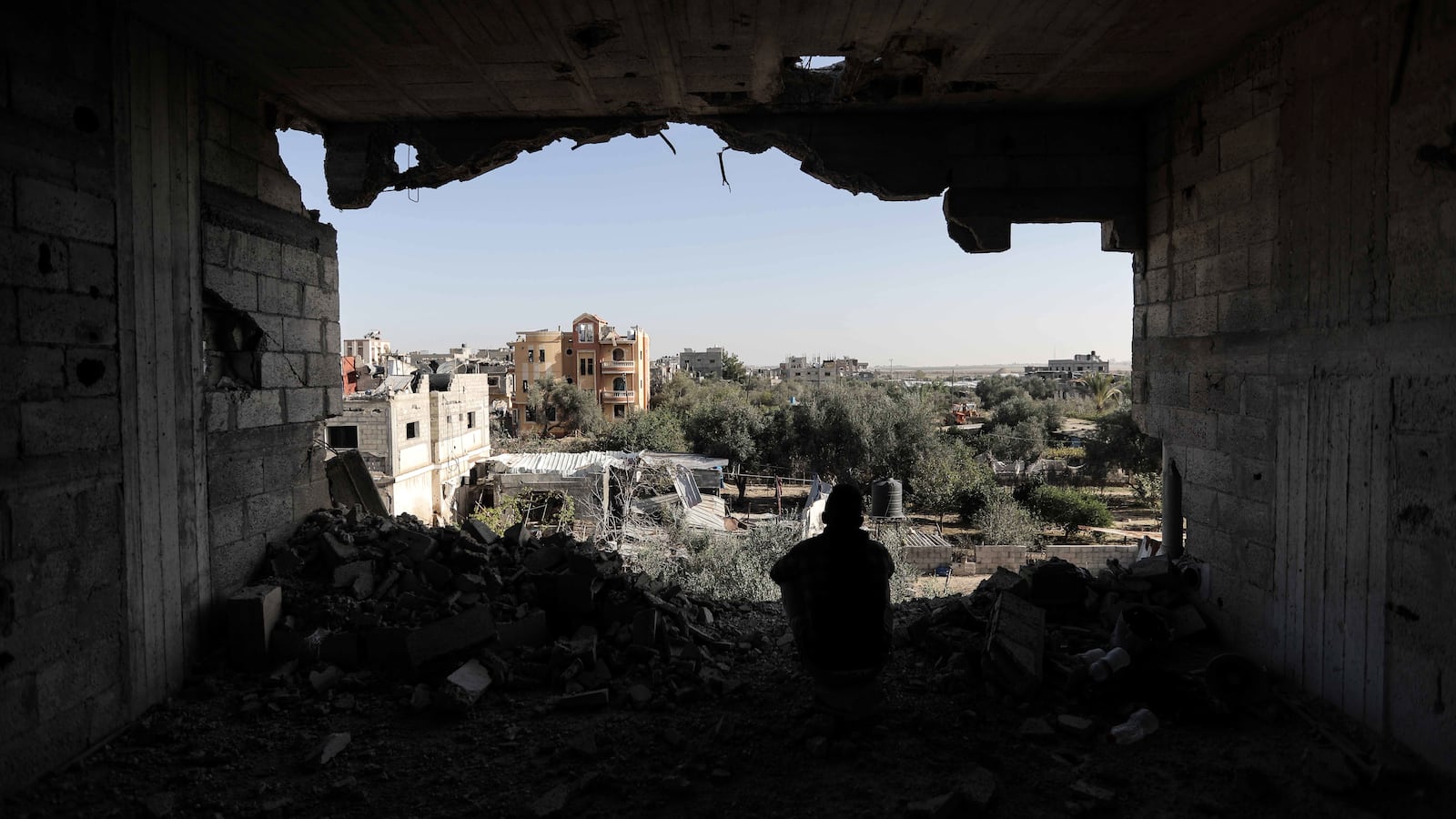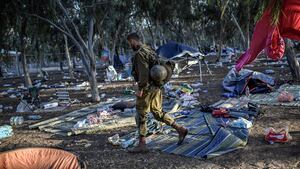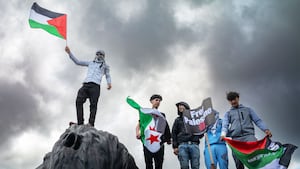I know terror from the inside out, having survived two terrorist attacks. I developed breast cancer from being a first responder at 9/11 and was poisoned by an FSB agent while providing first-hand medical care to Chechens during the Second Chechen War.
My losses were great. I quickly went from a high-achieving psychiatrist—working a 10-hour day seeing patients and running 10 miles during my lunch break—to a sickly immunocompromised bed-ridden patient.
For many years I lived in a liminal space between life and death. But by containing my desire for revenge and focusing on healing, I eventually experienced a spiritual awakening that transported me from the isolation of illness to an expanded sense of interconnectedness that was essential to my recovery.
Terrorism is a horrific symptom of the spiritual crisis, in which we can not recognize each other, that exists in our world today. The violence in the Middle East—according to Save the Children, more children have been killed since the start of the latest conflict in October—nullifies the virulent sides reifying the retaliation because in truth this is an intricate test of our belief in the sanctity of human life.
The idea that an eye for an eye will leave the whole world blind is Gandhi’s wise legacy.
Many, including me, would love to see the end to Hamas, but can it be feasible to eliminate radicalism in Gaza? Israel has suffered a horrifying terrorist attack and has a right to defend itself. But could Israel’s defense resonate in a humanitarian manner that defies that “might is right'' formula that has been our legacy in the Darwinian theory (which, let me remind you, is based on the observation of animals)?
By slaughtering Palestinians and depriving civilians of food, water, and medicine, Israel is only furthering cycles of resentment and breaking international laws of war. A U.S.-backed war by Israel, at an unbearable cost to Palestinians lives, is more likely to feed further extremism than crush it.
Leveling cities is what Syria did in Aleppo, Russia did in Grozny, and deprivation of food is what the Nazis did in the World War II siege of Leningrad. Innocent Palestinians, including women, children, and the elderly, must be protected from this violence.
How do we hold on to our values that all lives are worth saving even in the face of a horrific terrorist attack? The only real revenge for murder is achieving peace.
The United Nations maintains that Gaza has become a growing dehumanizing stain on our collective consciousness. We can not undo the terrifying massacres inflicted by Hamas, but we can avoid killing more Gazan civilians.
Sadly, every conflict in war disproportionately adversely affects the children on both sides. The numbers are still shifting, but it’s believed that at least 30 Israeli children were murdered by Hamas, and about 30 were kidnapped and taken back to Gaza as hostages.
On the Palestinian side, well over 4,500 children have reportedly been killed (so far). Many Gazans will become orphans, or die from cholera, and other infections due to lack of medical care or basic sanitary utilities.
Surviving children—not having the emotional development to understand the destruction and loss enveloping them—may be overlooked due to difficulties communicating their trauma. But both Palestinian and Israeli children will carry the psychological scar of the trauma of war the rest of their lives. Many will develop post traumatic stress, depression, anxiety, dissociative disorders, and regression to an earlier developmental stage. Every crater digs us deeper into the desire for destruction.
Israel should try to defeat Hamas, which plainly states it wants permanent war with Israel, by taking steps to achieve a lasting peace.
We are all inherently vulnerable as human beings and need to respect the humanity and dignity in each other rather than respond to the hate and bigotry.
Humanity is without borders. To refer to Gandhi again,“There is no way to peace, peace is the way.” Let’s pray that these two seemingly opposite forces can come together in such a way to find their center of peace and agree to a ceasefire.








